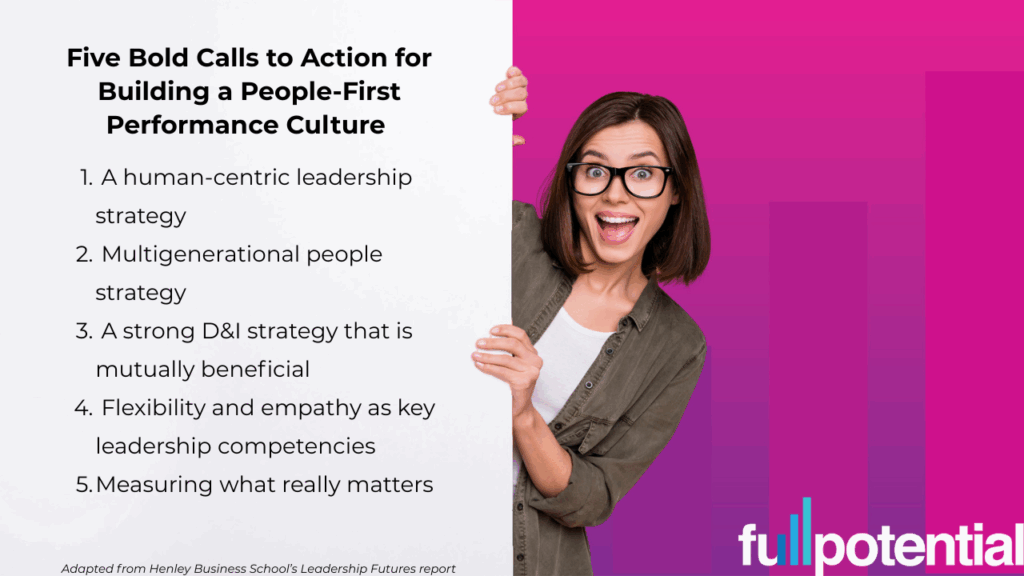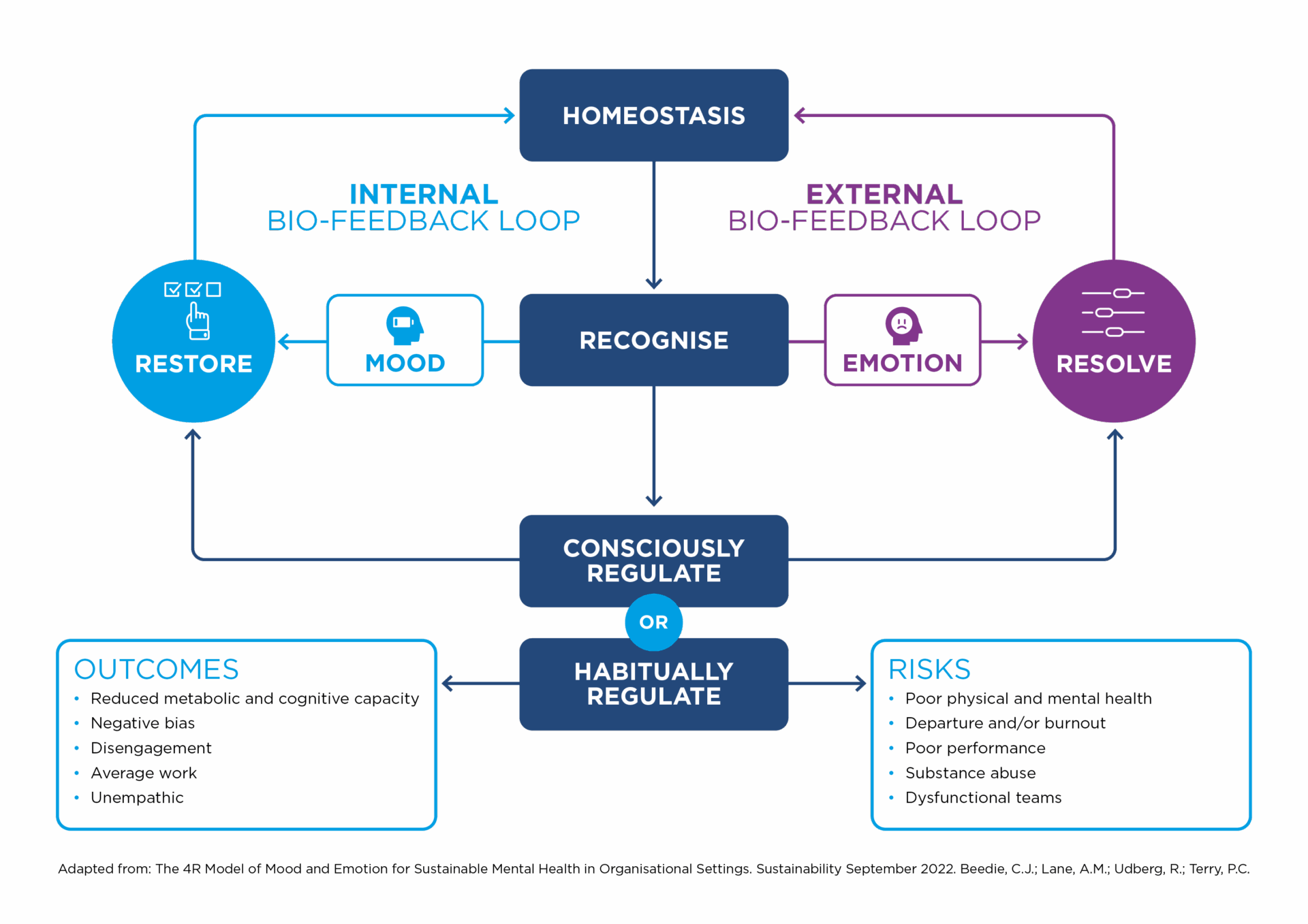Future of Leadership is People First
The research is unequivocal, but what does it really mean?
This month, in our Thought Leadership Spotlight, we bring you the highlights from the latest Henley Business School Report, which robustly challenges outdated leadership paradigms and makes a bold, boardroom-proof case for a people-first approach as the ‘only’ sustainable route to high performance And in the spirit of getting practical, we explore the frameworks that bring a people-first performance culture to life and share a practical visual to help you bring it all together in your own organisation.
Organisations who chase old-school performance metrics without addressing human needs are not just failing their people. They’re failing, full stop.
Henley’s research shows that traditional high-performance models don’t and won’t work. Operating in the era of Industry 5.0, organisations that prioritise trust, diversity, empathy and true wellbeing outperform their more resistant competitors.
The high-performance organisations of the past were built on control. The ones of the future will be built on conscious leadership, where psychological safety is the norm, not just a leadership programme module.
So why are so many companies stuck?
Because redefining performance means letting go of power structures that once worked. Clinging to them now is akin to trying to optimise the engine of a horse-drawn carriage while the world flies past in EVs.
“You can’t manage your way to high performance. You have to liberate it!”
The Henley report highlights five key calls to action that should be centre stage of a future-proof strategy:
- A Human-Centric Leadership Strategy – the shift from an economic transaction to a relationship rooted in mutual commitment to societal impact and responsible growth, placing strong value on flexibility, inclusion and well-being. If the term omniployment is double Dutch to you, dive into the report.
- Multigenerational People Strategy – recognising the influence of Gen Z and a multigenerational workforce, whilst also planning for the gap in experience and wisdom created by the silver tsunami.
- A Strong D&I Strategy That Is Mutually Beneficial – a nod to inclusivity and diversity just won’t wash. Organisations must build workplaces that are inclusive and sustainable.
- Flexibility and Empathy as Key Leadership Competencies – these are no longer ‘fluffy’ qualities, but essential armoury for navigating the complexities of the modern business environment.
- Measuring What Really Matters – a shift in performance metrics to include factors like employee satisfaction, ethical impact and long-term sustainability.
The future belongs to leaders who are bold enough to build people-first cultures. Not as a nice-to-have, but as a non-negotiable. It’s not just the right thing to do. It’s the only thing that will work.
FPG Gets Practical
There’s no shortage of advice on how to build a high-performing organisation. But the most effective approaches all share a common thread: they connect culture, leadership, systems and people in ways that are practical, human and aligned to strategic goals. Contact us to learn more.







